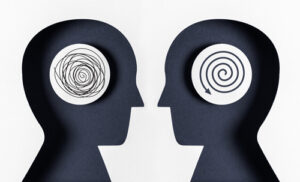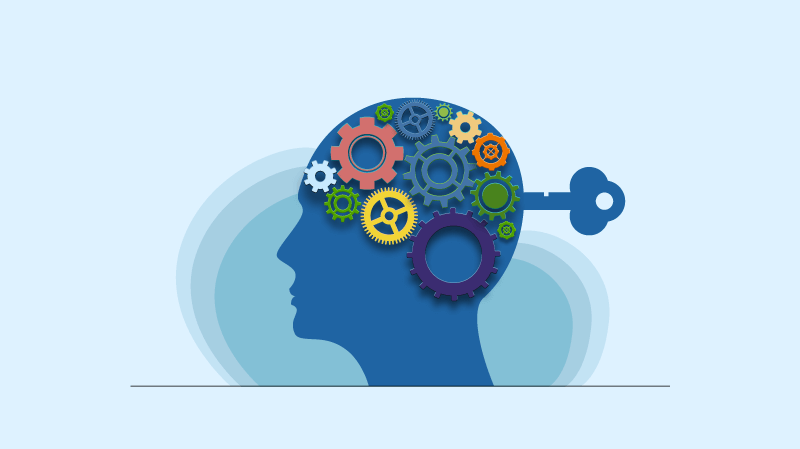Cognitive Behavioral Therapy (CBT) is a widely recognized and highly effective approach to treating depression. In this comprehensive guide, we’ll delve into the world of CBT and its application in combating depression. From understanding the fundamentals to practical tips and insights, this article will provide you with valuable information on how CBT can be a transformative tool in managing and overcoming depression.
Contents
Introduction to Cognitive Behavioral Therapy (CBT)
Cognitive Behavioral Therapy, or CBT, is a structured and goal-oriented psychotherapy approach that has gained immense popularity in recent years. It is particularly effective in treating depression, anxiety, and various other mental health issues.
CBT operates on the premise that our thoughts, feelings, and behaviors are interconnected, and by altering negative thought patterns and behaviors, individuals can achieve significant improvements in their mental well-being.
Understanding Depression

Depression is a common and serious mental health condition that affects millions of people worldwide. It goes beyond feeling sad or having a “bad day” and can significantly impact a person’s quality of life. Understanding depression is crucial for both those who may be experiencing it and for those who want to support someone with depression. Here are some key points to help you understand depression better:
Symptoms: Depression can manifest in a variety of ways, but common symptoms include:
- Persistent sadness or a feeling of emptiness
- Loss of interest or pleasure in activities once enjoyed
- Changes in appetite or weight
- Sleep disturbances (insomnia or oversleeping)
- Fatigue or low-energy
- Feelings of worthlessness or excessive guilt
- Difficulty concentrating or making decisions
- Thoughts of death or suicide
Causes: Depression is a complex condition with multiple contributing factors. These can include genetic predisposition, chemical imbalances in the brain, stressful life events, trauma, chronic medical conditions, and certain medications. It’s often a combination of these factors that leads to the development of depression.
How CBT for Depression Works?
CBT for depression works by helping individuals identify and change negative thought patterns and behaviors that contribute to their depressive symptoms. Here’s a breakdown of how CBT works for depression:
- Assessment: The therapy process typically begins with an assessment by a trained therapist to understand the individual’s specific symptoms, triggers, and thought patterns associated with depression. This assessment helps the therapist tailor the treatment plan to the individual’s needs.
- Education: In the early stages of CBT, the therapist educates the individual about depression, its symptoms, and the CBT approach. This helps individuals better understand their condition and what to expect from therapy.
- Identifying Negative Thought Patterns: CBT focuses on identifying and challenging negative thought patterns and cognitive distortions that contribute to depression. Common cognitive distortions include black-and-white thinking, overgeneralization, and catastrophizing. The therapist helps the individual become aware of these distorted thoughts and encourages them to question their accuracy.
- Behavioral Activation: Depression often leads to a lack of motivation and a decrease in pleasurable activities. CBT addresses this by gradually reintroducing individuals to activities they once enjoyed or encouraging them to engage in new activities. This process is known as behavioral activation and helps individuals regain a sense of satisfaction and accomplishment.
- Setting Realistic Goals: CBT helps individuals set realistic and achievable goals, both short-term and long-term. These goals can be related to daily routines, work, relationships, and personal well-being. Achieving these goals can boost self-esteem and reduce feelings of hopelessness.
Benefits of CBT for Depression
Cognitive-behavioral therapy (CBT) has been extensively studied and proven effective in the treatment of depression. It offers several benefits for individuals experiencing depression:
- Evidence-Based: CBT is one of the most well-researched and evidence-based treatments for depression. Numerous studies have demonstrated its effectiveness in reducing depressive symptoms and preventing relapse.
- Focused and Goal-Oriented: CBT is a structured and goal-oriented therapy. It helps individuals identify specific problems and develop practical strategies to address them. This can lead to a sense of accomplishment and empowerment.
- Addresses Cognitive Distortions: CBT focuses on identifying and challenging negative thought patterns and cognitive distortions common in depression, such as all-or-nothing thinking and self-blame. By changing these thought patterns, individuals can experience relief from depressive symptoms.
- Behavioral Activation: CBT includes behavioral activation techniques that encourage individuals to engage in pleasurable and meaningful activities. This can help combat the loss of interest and motivation often associated with depression.
- Skills for Life: CBT equips individuals with valuable coping skills that they can use not only during therapy but also throughout their lives. These skills can help prevent future episodes of depression and manage stress more effectively.
- Time-Limited: CBT is usually a relatively short-term therapy. Many individuals experience significant improvements in their depressive symptoms within a few months of treatment. This time-limited approach can be appealing to those seeking a more focused intervention.
- Adaptable: CBT can be adapted to the individual’s unique needs and circumstances. Therapists tailor the treatment to address specific triggers and challenges the person is facing.
Finding the Right Therapist

Finding the right therapist is a crucial step in getting effective mental health treatment. The therapeutic relationship is a key factor in the success of therapy, so it’s important to find a therapist who is a good fit for you. Here are some steps to help you find the right therapist:
- Identify Your Needs: Start by clarifying your specific mental health needs and goals for therapy. Are you seeking help for depression, anxiety, relationship issues, or another concern? Understanding what you want to address in therapy will help you find a therapist with the right expertise.
- Types of Therapists: There are different types of therapists, including psychologists, psychiatrists, social workers, counselors, and marriage and family therapists. Research the differences among these professionals to determine which one aligns with your needs. For example, if you think you may need medication, a psychiatrist may be appropriate in addition to a therapist.
- Credentials and Licensing: Verify that the therapist you consider is properly licensed and credentialed in your state or country. Licensing requirements vary, so ensure they meet the qualifications to practice legally in your area. You can typically check licensing boards or professional organizations for this information.
- Therapeutic Approach: Different therapists use different therapeutic approaches (e.g., CBT, psychodynamic, humanistic, etc.). Research these approaches to determine which one resonates with you or aligns with your treatment preferences. A therapist’s approach should match your needs and values.
- Specialization: Consider whether you require a therapist with expertise in a particular area, such as trauma, addiction, eating disorders, or LGBTQ+ issues. Specialized knowledge can be important if your concerns are specific.
- Insurance Coverage: Check if the therapist accepts your insurance plan or if they offer sliding scale fees based on your income. Financial considerations are important when seeking therapy.
CBT Techniques for Depression
 Cognitive-behavioral therapy (CBT) employs various techniques and strategies to help individuals manage and alleviate symptoms of depression. These techniques are designed to target negative thought patterns and behaviors that contribute to depression. Here are some CBT techniques commonly used for depression:
Cognitive-behavioral therapy (CBT) employs various techniques and strategies to help individuals manage and alleviate symptoms of depression. These techniques are designed to target negative thought patterns and behaviors that contribute to depression. Here are some CBT techniques commonly used for depression:
- Cognitive Restructuring:
- Identifying Automatic Negative Thoughts (ANTs): Individuals learn to recognize and label their automatic negative thoughts, which are often unrealistic and overly negative.
- Challenging Cognitive Distortions: Therapists help clients identify and challenge common cognitive distortions, such as all-or-nothing thinking, catastrophizing, and overgeneralization.
- Examining Evidence: Clients are encouraged to gather evidence both for and against their negative thoughts to develop a more balanced and rational perspective.
- Behavioral Activation:
- Activity Scheduling: Clients work with their therapist to create a structured daily schedule that includes pleasurable and meaningful activities. This helps combat the reduced motivation and engagement often seen in depression.
- Graded Task Assignment: Individuals are encouraged to gradually reintroduce themselves to activities they have been avoiding due to depression. Starting with small, manageable tasks can build confidence.
- Thought Records/Journaling: Clients keep a thought journal to record and analyze their negative thoughts and emotions. This process helps them become more aware of their thought patterns and provides material for cognitive restructuring.
- Identifying Core Beliefs and Assumptions: Clients explore deeper, underlying beliefs and assumptions about themselves, others, and the world. These core beliefs can be challenged and modified to reduce depressive symptoms.
- Mindfulness and Relaxation Techniques:
- Mindfulness exercises help individuals stay present and non-judgmentally observe their thoughts and emotions. Mindfulness can reduce rumination and increase emotional regulation.
- Relaxation techniques, such as deep breathing, progressive muscle relaxation, and guided imagery, can help alleviate physical tension and anxiety often associated with depression.
- Problem-Solving Skills: Clients learn effective problem-solving strategies to address life stressors and challenges. This skill-building approach helps reduce feelings of helplessness and hopelessness.
Homework Assignments in CBT

Homework assignments are a common and essential component of Cognitive-Behavioral Therapy (CBT). These assignments are given to individuals in therapy to practice and apply the skills and techniques they learn during therapy sessions. Homework assignments serve several important purposes in CBT:
- Skill Practice: Homework assignments provide individuals with opportunities to practice and reinforce the skills and strategies they learn in therapy. Repetition and practice are essential for mastering new ways of thinking and behaving.
- Generalization: Homework assignments encourage individuals to generalize what they’ve learned in therapy to their daily lives. They help bridge the gap between the therapeutic setting and real-world situations.
- Self-Responsibility: Completing homework assignments promotes a sense of responsibility for one’s mental health and recovery. It encourages individuals to take an active role in their treatment.
- Self-Monitoring: Some homework assignments involve self-monitoring, where individuals track their thoughts, emotions, and behaviors in specific situations. This self-awareness is valuable for identifying patterns and triggers.
- Feedback and Discussion: When individuals complete homework assignments, it provides a basis for discussion and feedback in therapy sessions. Therapists can use these assignments to assess progress and address any challenges or barriers.
- Goal Achievement: Homework assignments often align with treatment goals. Completing these assignments can bring individuals closer to achieving their desired outcomes, which can be motivating.
Conclusion
In conclusion, Cognitive Behavioral Therapy is a highly effective and evidence-based approach to treating depression. By addressing negative thought patterns and modifying behaviors, individuals can regain control over their lives and find relief from the burden of depression.
If you or someone you know is struggling with depression, don’t hesitate to explore the potential benefits of CBT and seek professional guidance.
If you are experiencing depression related issues, Online Depression Counseling at TherapyMantra can help: Book a trial Online therapy session.


